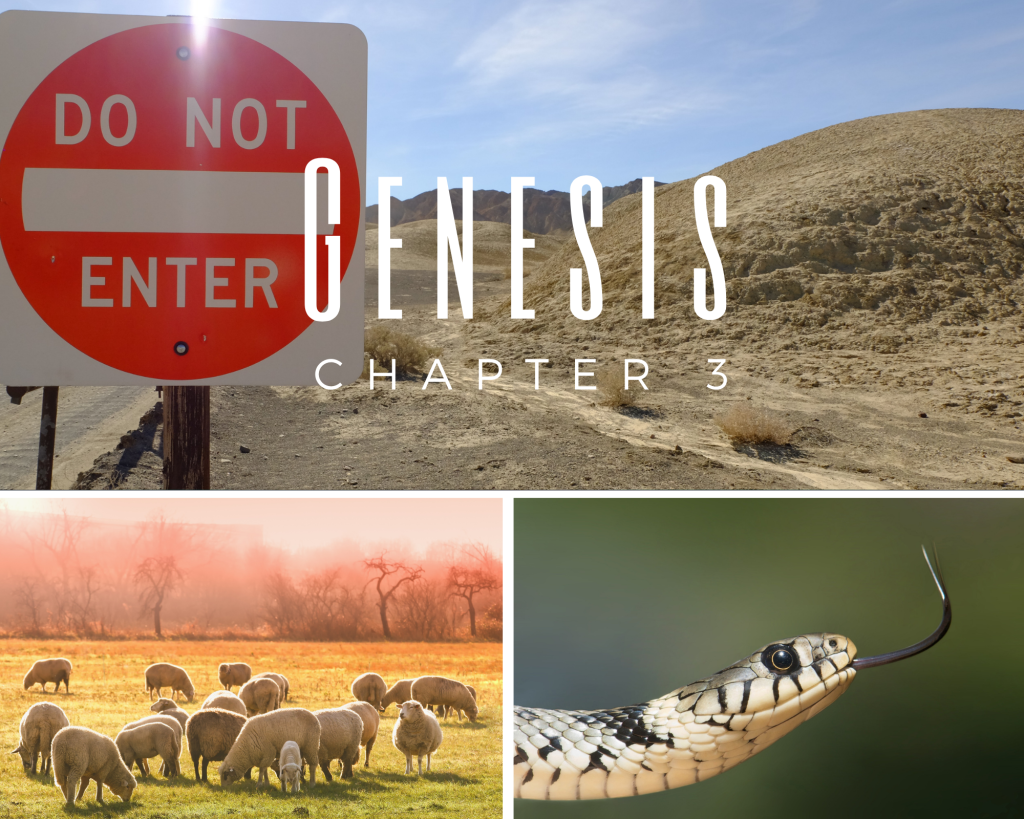
V1-7

The Hebrew word for knowing in verse 5 is יֹדְעֵ֖י (yō·ḏə·‘ê) from the verb יָדַע (yada), which means to know, perceive, be aware of, be acquainted with, recognise, acknowledge, to know carnally, to regard, care for.
You must not eat from any tree? (v1)
The serpent started to tempt Eve by calling into question what she knew about God (v1 Did God really say). The devil used the same technique with Jesus (Matthew 4:3 If you are the Son of God). We should expect him to use the same tricks with us.
We need to know what God has said in his word, the Bible, then stand firm and do not doubt.
When you eat the fruit you will be like God, knowing good and evil (v5)
Modern technology allows us access to all kinds of information. In your desire for knowledge, be careful that you do not seek to become independent from God. You were not designed to be omnipotent (all-powerful), omnipresent (everywhere), or omniscient (all-knowing).
There is a saying — knowledge is power. The sin of gossip reflects our desire to know everything and to become like a god.
Many people experience burnout because they don’t accept their God-given limitations.
The fruit of the tree was pleasing to the eye (v6)
In the Garden of Eden, the forbidden fruit looked good to eat. Eve trusted her own eyes rather than God’s word, and so she fell into sin.
Jesus’ first temptation was to turn stones into bread to fill his physical hunger, but he resisted. He quoted God’s word to Satan and did not sin (Matthew 4:14).
V8-13

The Hebrew word for walking in verse 8 is מִתְהַלֵּ֥ךְ (miṯ·hal·lêḵ) from the verb הָלַךְ (halak), which means to go, walk, proceed.
The sound of the Lord God walking (v8)
Adam and Eve could hear the sound of God walking in the garden of Eden. Here are some questions for you to consider — How did Adam and Eve hear God walking? Does God have a physical body?
V14-19

The Hebrew word for toil in verse 17 is בְּעִצָּבוֹן֙ (bə·‘iṣ·ṣā·ḇō·wn) from the root word עָצַב (atsab), which means to travail, to suffer pain or sorrow, to grieve, to labour, to toil.
Through painful toil you will eat food (v17)
Adam and Eve were led into sin by their desire to have independence from God. It resulted in a curse, not a blessing. They now had to work for everything.
You will return to dust (v19)
God created man from the dust of the ground (v7). Sin undoes God’s act of creation and turns it back to dust.
V21-24
God made garments of skin (v21)
God wanted to have a personal relationship with humans. He walked with Adam and Eve as friends. But when sin came, they lost their intimate relationship with him.
When Adam and Eve sinned, they felt ashamed of their nakedness. So they hid from God. God provided a temporary solution to this problem by killing an animal to make them clothes.
Later he provided the eternal solution: Jesus died on the cross, taking our sin and giving us his righteousness (2 Corinthians 5:21). We can now put on Christ (Galatians 3:27) to cover our shame and allow us to have a personal relationship with God once again.

The Hebrew word for banished is וַֽיְשַׁלְּחֵ֛הוּ (way·šal·lə·ḥê·hū) from the verb שָׁלַח (shalach), which means to send, commission, send away, let loose, let go, put forth, stretch out, extend, dismiss, divorce, set at liberty, give up, deliver up, cast out, drive out.
God banished them from the garden (v23)
Adam and Eve did not immediately die when they ate the forbidden fruit. However, their sin cut them off from the source of life, eventually leading to their death.